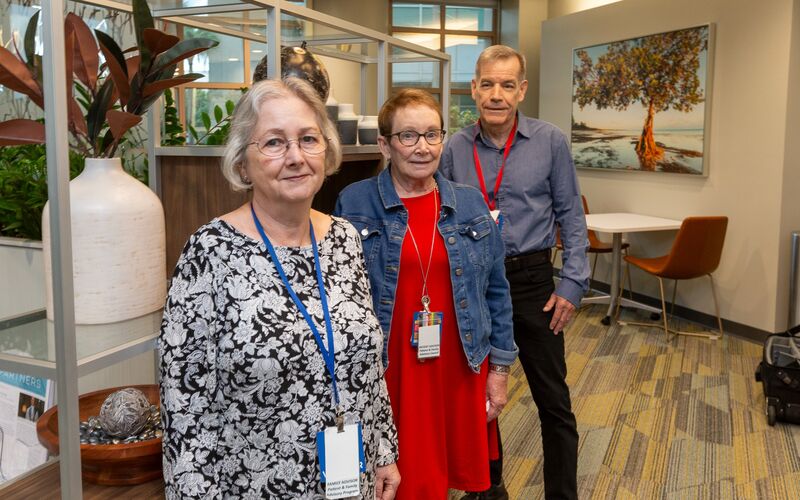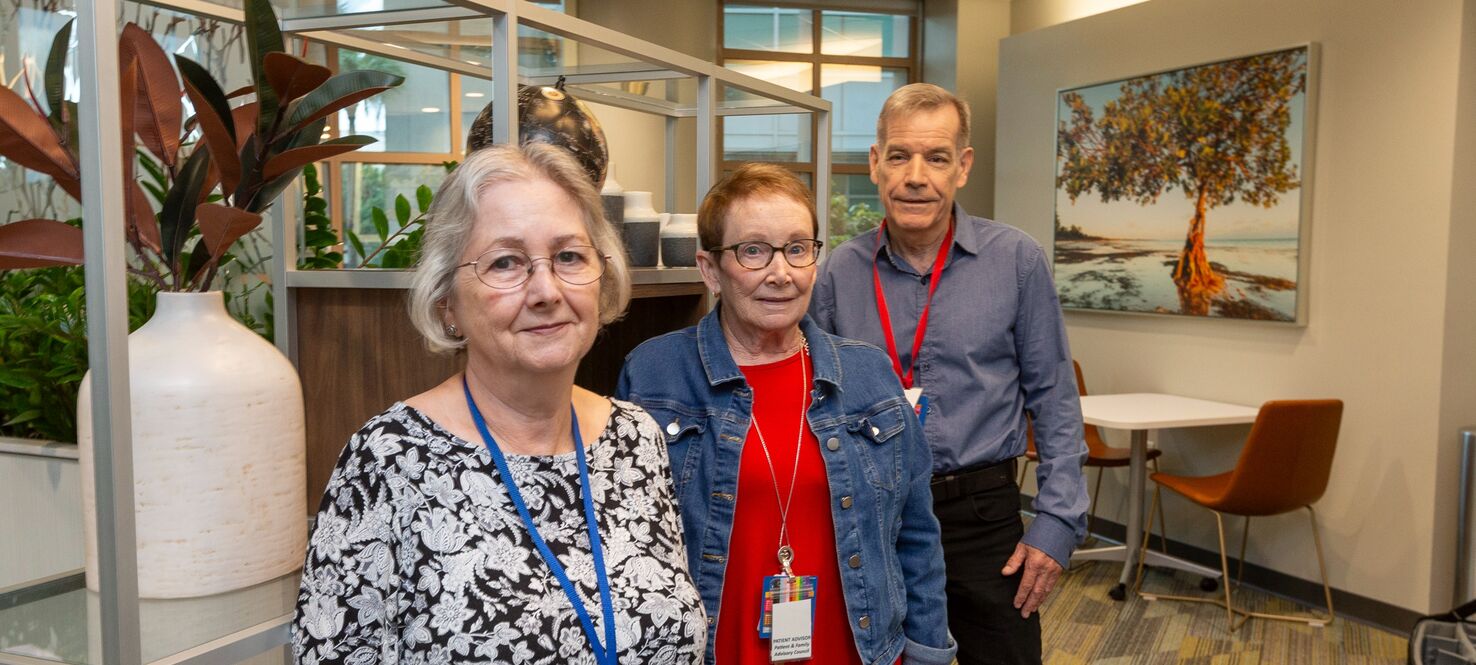Guiding with Hope: Moffitt's Peer Visitors Turn Personal Cancer Experiences Into Powerful Tools for Healing
Connections are meaningful and often a source of hope. They provide comfort that the most difficult journeys in life are not faced alone. At Moffitt Cancer Center, this hope is embodied by a group of dedicated individuals known as peer visitors. These volunteers, who have experienced cancer firsthand, offer their time, compassion and wisdom to help patients navigate their cancer journeys.
Peer visiting, a resource offered through Moffitt’s Patient and Family Advisory Program, provides a unique perspective to patient support. Peer visitors not only provide a listening ear, but profound empathy, guiding patients and families through the complexities of diagnosis and treatment. It's this shared experience that fosters deep trusting relationships and helps patients feel truly supported.
The program is enriched by the dedication of volunteers like Susan Brill, Vickie Singletary and John DesRoches, who each bring their own unique experiences and compassion to the patients they support.
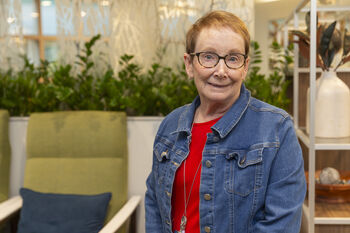
Susan Brill, who has volunteered for three years, is a familiar face at the Magnolia Library and Coffee Connections.
Brill, who has peer visited for three years, assists patients in Moffitt’s Magnolia Campus and the McKinley Hospital Infusion Centers, the Breast Clinic, Coffee Connections and inpatient rounding at both hospitals. Singletary, with two years of service, is a familiar face at the Magnolia Library and Coffee Connections. DesRoches, with five years as a peer visitor, dedicates his time to infusion patients and participates in inpatient rounding at the Magnolia and McKinley hospitals. Together, these peer visitors represent the heart of Moffitt’s supportive community.
"As a peer visitor, I have been able to better understand the emotional side of the cancer journey. So much focus is on the physical piece, and I realized early on that the emotional aspect is sometimes even more important,” Singletary said. "Cancer can be very isolating, and sometimes patients just need to talk to someone — especially those who live alone or find it difficult to discuss their illness with loved ones, not wanting to worry them."
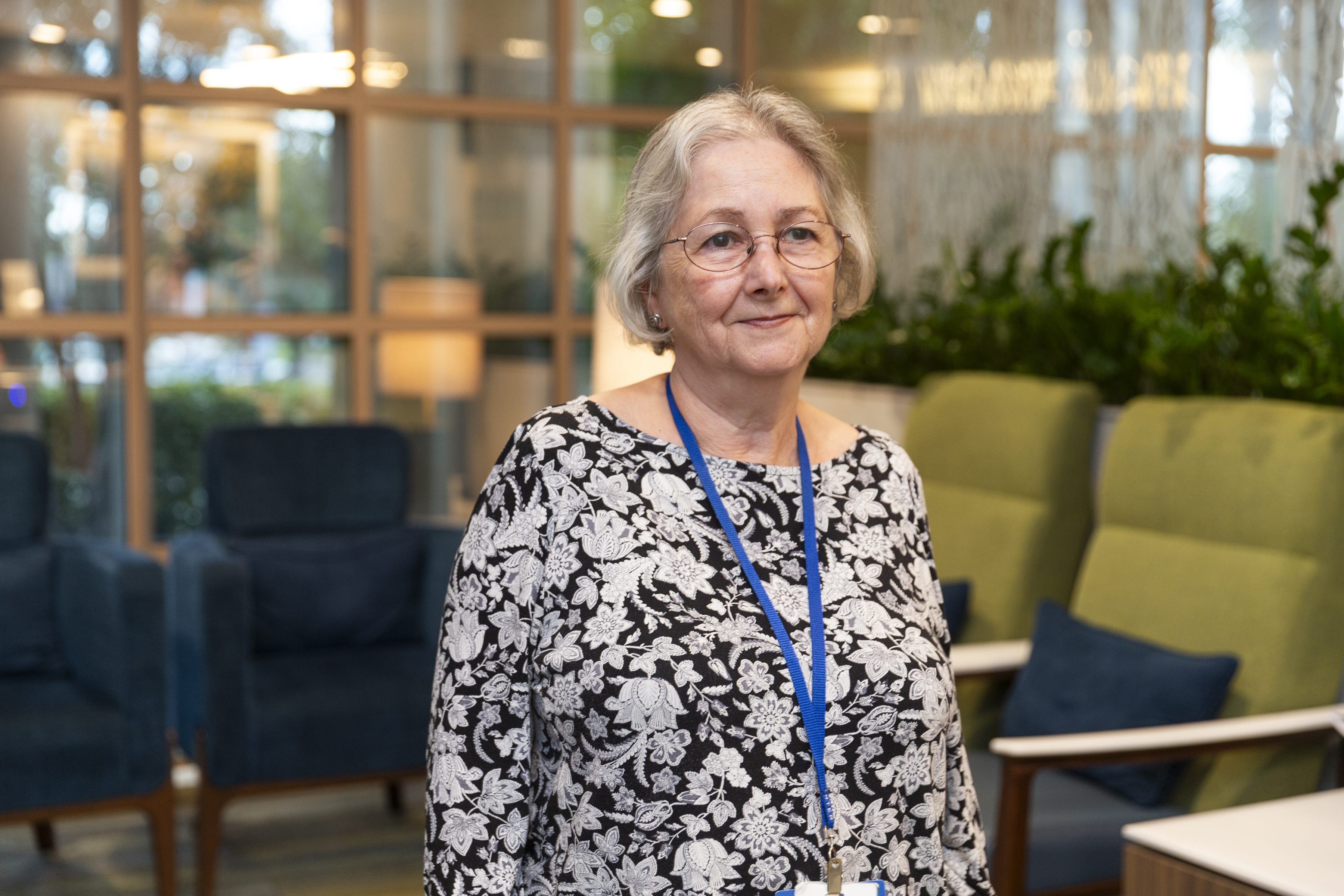
With peer visitors, patients are offered a safe space to ask questions, express fears and even vent frustrations. These volunteers know the importance of being heard and validated, as they once sought the same. They’re not just guides. They are walking proof that there is life beyond cancer, offering hope through their own survival.
In fact, peer visiting not only leaves a profound impact on the patients but also deeply touches the visitors themselves.
"When I come to Moffitt, I see hope, I see courage, I see strength," DesRoches said. “Every interaction, no matter how small, holds immense significance. Each hour I spend at the cancer center, I think about how that little moment in time wouldn’t have happened if I wasn’t there. It’s like throwing a life preserver to someone who’s drowning. And in those critical moments, it really matters to them."
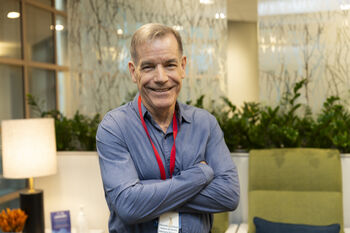
John DesRoches spends most of his time as a peer visitor in the infusion and inpatient areas.
Peer visitors stand by patients through their most challenging moments, but they also share in their happiest times. Whether it's celebrating the milestone of ringing the bell after completing treatment or simply hearing about a patient's exciting weekend plans, these moments of connection are deeply meaningful. Though there’s often a bittersweet feeling knowing they may not see the patient again after they ring the bell, it’s a joyful reminder that they've helped someone reach a significant victory in their journey.
Peer visitors at Moffitt benefit from a robust support system provided by the Patient and Family Advisory team, including monthly meetings, debriefings and ongoing training sessions. These gatherings not only offer opportunities for learning and growth but also provide crucial encouragement and reassurance.
“For anyone considering becoming a peer visitor, I would say two words: DO IT, with huge letters. It is so rewarding every day. We have a fabulous team. There's so much support given to us as peer visitors that you really shouldn't have any fears,” Brill added.
The ripple effects of peer visiting extend beyond the walls of Moffitt, touching lives in ways that are both deeply personal and universally transformative. Dedicated volunteers like Brill, Singletary and DesRoches, turn their personal experiences into powerful tools for healing. In each interaction, they remind us that even in the midst of adversity, human connection can light the way and turn moments of challenge into milestones of hope.


